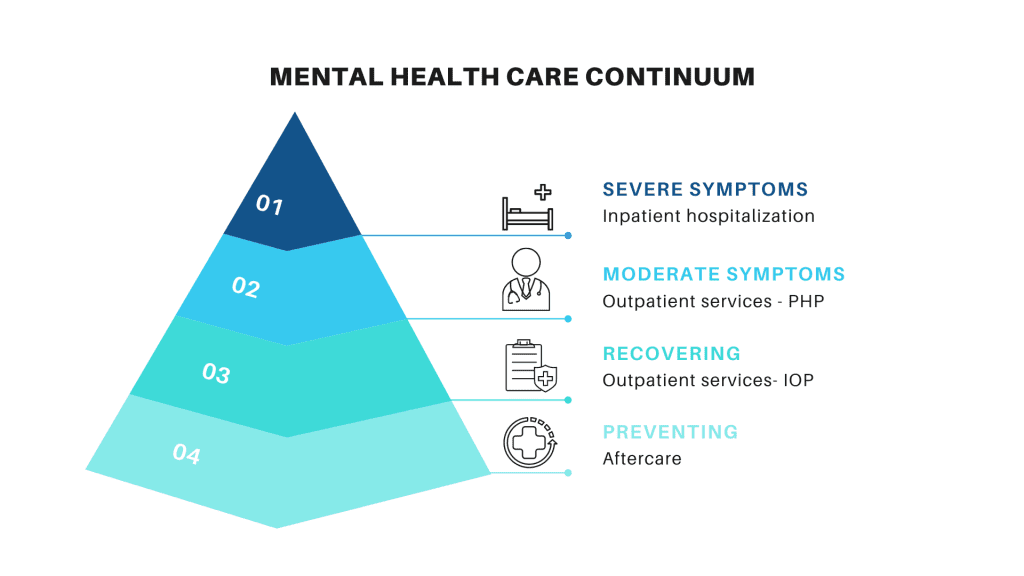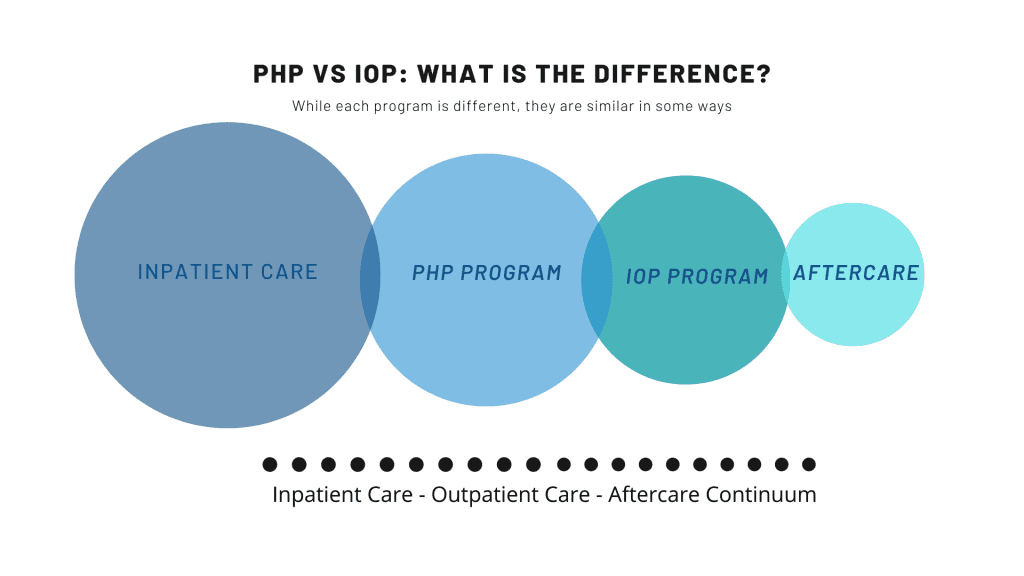Intensive Outpatient Program Duration
Intensive Outpatient Programs (IOPs) bridge the gap between full-time residential care and traditional outpatient services. Designed for individuals who require more structured support than weekly therapy but do not need 24-hour supervision, IOPs offer flexibility—letting clients continue to work, attend school, or care for family while engaging in an intensive treatment schedule. Overland IOP in Los Angeles provides a robust program that balances evidence-based therapies, individualized care, and flexible scheduling. Understanding the expected duration of IOP can help you plan for recovery, coordinate with work or school, and set realistic goals.

What Is an Intensive Outpatient Program (IOP)?
An IOP is a structured, non-residential treatment model that provides more intensive support than standard outpatient therapy but allows clients to continue living at home and fulfilling daily responsibilities such as work, school, or family obligations. Unlike inpatient or residential programs, IOP participants attend scheduled therapy sessions—typically ranging from 3 to 4 hours per day, 3 to 5 days a week—while returning home each evening. This balance of treatment intensity and flexibility makes IOP an ideal option for those who:
- Need consistent support and accountability but do not require 24-hour medical supervision.
- Are stepping down from a higher level of care (e.g., Partial Hospitalization Program) once their symptoms are stabilized.
- Require more structure than traditional outpatient therapy due to co-occurring conditions or moderate symptom severity
How Long Is IOP?
Daily and Weekly Structure
- Hours per Day: Most IOP sessions run approximately 3 hours per day.
- Days per Week: Clients attend 3–5 days a week, depending on clinical recommendations and insurance coverage.
This schedule ensures that participants receive consistent, frequent contact with their treatment team while preserving time for work, school, and family obligations.

Total Program Length (Weeks and Months)
IOP programs generally span 8 to 12 weeks. This timeframe aligns with national standards for IOPs addressing both mental health and substance use disorders. However, the exact duration can vary based on individual factors, including:
- Severity of Symptoms or Addiction: Clients with more complex needs may require an extended IOP stay.
- Progress in Treatment: Clinical teams perform periodic assessments to gauge progress, adjusting the length of stay accordingly.
- Insurance Limitations and Medical Necessity: Insurance providers often authorize a set number of weeks, while extensions require demonstrated clinical need.
For some individuals—especially those with severe co-occurring mental health and substance use issues—extended IOPs (beyond 12 weeks) may be medically indicated. In California, as long as a medical director or Licensed Practitioner of the Healing Arts (LPHA) deems continued treatment “medically necessary,” IOP length can be extended accordingly.

IOP vs. PHP: Understanding the Difference
- Partial Hospitalization Program (PHP):
- Hours per Day: Approximately 5–6 hours.
- Days per Week: Typically 5 days.
- Intensity: More intensive than IOP and often functions as a bridge between inpatient care and IOP.
- Intensive Outpatient Program (IOP):
- Hours per Day: 3 hours.
- Days per Week: 3–5 days.
- Intensity: Offers structured therapy without requiring a full-day commitment.
Overland’s PHP is ideal for individuals who need a high level of structured support during daytime hours but can still return home in the evenings. IOP serves as the next step down (or an entry point for moderate cases) once clients no longer require the intensity of PHP.
California IOPs: Regulations, Accessibility, and Considerations
Licensing and ASAM Level
- In California, IOPs are classified under ASAM Level 2.1 (Intensive Outpatient Treatment) and must comply with Department of Health Care Services (DHCS) regulations. Department of Health Care Services
- Providers must obtain an outpatient license from DHCS (or equivalent county authority) before offering IOP services. Eligible clinicians include LPHAs (Licensed Practitioners of the Healing Arts) such as psychiatrists, nurse practitioners, physician assistants, Licensed Clinical Social Workers (LCSWs), and Licensed Marriage and Family Therapists (LMFTs).
Medi-Cal and Insurance Coverage
- California’s Drug Medi-Cal Organized Delivery System (DMC-ODS) recognizes IOP as a reimbursable service. Under Medi-Cal, IOP stays can be extended if a medical director or LPHA certifies continued medical necessity.
- Overland accepts most major private and corporate insurance plans statewide, but we do not accept Medi-Cal. Our admissions team can verify coverage within minutes.
Telehealth and In-Person Options
- California law permits telehealth delivery of mental health IOP services, provided clinicians are licensed in California. Overland offers both in-person care at our Los Angeles facility and virtual IOP sessions to clients throughout California—ensuring accessibility for those in remote or underserved areas.
- Virtual IOP participants adhere to the same intensity and structure as in-person clients: 3–4 hours per day, 3–5 days per week.
Geographic and Demographic Considerations
- In densely populated regions such as Los Angeles, San Francisco, and San Diego, competition among IOP providers can affect wait times and scheduling flexibility. Overland’s blended in-person and virtual model helps mitigate access barriers.
- For rural communities, virtual IOP eliminates the need to travel long distances, reducing transportation hurdles and supporting continuity of care.

Is IOP Right for You?
IOP is designed for individuals who:
- Have moderate to mild symptoms of depression, anxiety, PTSD, or co-occurring substance use disorders.
- Are stepping down from inpatient or PHP care after stabilization of acute symptoms.
- Seek a structured support network without interrupting work, school, or family responsibilities.
Our multidisciplinary team of board-certified psychiatrists, master’s-level therapists, and case managers develops individualized treatment plans that evolve with each client’s progress. We assess clients weekly to determine readiness for step-down levels of care or discharge.


Insurance Coverage
-
Overland IOP accepts most private insurance plans, including Aetna, Blue Cross Blue Shield, Cigna, UnitedHealthcare, and more. We do not accept Medicaid plans, but we provide affordable financing options.
Telehealth IOP
-
Following California’s telehealth regulations, Overland offers virtual IOP sessions that mirror in-person experiences.
-
Clients living outside Los Angeles—or those facing transportation or mobility barriers—benefit from equivalent treatment intensity via secure video platforms.
-
Telehealth IOP includes all standard services: group therapy, individual counseling, case management check-ins, and medication management.
Published: May 23, 2025
Last Updated: August 24, 2025

Published: February 14, 2026
Medication-Assisted Treatment (MAT): How It Works?
Summary: Medication-assisted treatment (MAT) is an evidence-based approach to addiction treatment that combines FDA-approved medications with behavioral therapy and counseling to treat substance use disorders — primarily opioid and alcohol addiction. MAT is endorsed by the Substance Abuse and Mental Health Services Administration (SAMHSA), the National Institute on Drug Abuse (NIDA), and the World Health […]
Read more
Published: February 06, 2026
Talk Therapy: Types, Benefits & How It Works in California
Summary: Talk therapy — also known as psychotherapy — is a structured, evidence-based treatment approach in which a trained mental health professional helps individuals identify, understand, and change the thoughts, emotions, and behaviors that contribute to mental health conditions and substance use disorders. It is the foundation of treatment for depression, anxiety, PTSD, personality disorders, […]
Read more
Published: January 27, 2026
What Is DPD? Understanding Dependent Personality Disorder
Most people don’t ask, “What is DPD or Dependent Personality Disorder?” They come in feeling drained, anxious, and stuck in relationships that feel restrictive yet hard to leave. Being alone feels unsettling. Decision-making feels paralyzing. Reassurance becomes a daily necessity rather than a comfort. At Overland IOP in Los Angeles, we often see Dependent Personality […]
Read more
